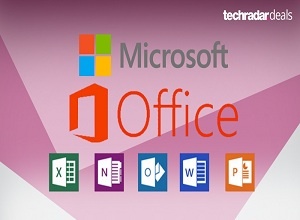As a human race, we are constantly striving for easier ways of doing things: simpler, faster, and more practical. Thanks to better tech, you can now interact with people globally and instantly with the click of a few buttons.
Likewise, you can also physically move quickly due to advances in transportation technology. When it comes to the age-old practice of banking – the same is now happening.
Provided you have the necessities, a passport, residential address and a mobile phone, you can now open a bank account within minutes. This is brought about by a Fintech offering better known as Open Banking.
Open banking uses APIs that enable third-party developers to build applications and services around the financial institution.
Wikipedia
It is ultimately about giving you a better, secure, and flawless service experience. This comes with the opportunity to gain access to excellent financial products.
Online security expert and Chairwoman of Zortrex, Susan Brown reflects on the advent of the new offering:
“Just over a year ago when Open Banking came into the limelight for the Fintech world. CMA9 were effectively mandated to make their banking platform accessible for third party companies.”
A comprehensive global report commissioned by Accenture emphatically highlighted growth and talking points about the emerging industry in 2017.
This is all wonderful, innovative, and promotes transparency within the financial services market. There is only one drawback:
“Consumers really do not know what Open Banking means, there has been a lot published about the benefits that are to be had from Open Banking. At the same time, consumers have become very aware of the negative aspects around sharing their data.”
Scourge of hacks & breaches
Daily, you hear more and more about hacks, and data compromises. With the UK’s Lloyds Bank breach last year; the trust by its consumers to share their financial and personal information, some would say, is completely gone.
In addition, you go onto a site to review products and before you know it, you are bombarded with adverts on the products that you have been looking at elsewhere. This has led some consumers to abandon shopping carts and refrain from using online retailers.
If not adequately protected, the newly established Fintech system might suffer a similar data breaches.
Visa and Mastercard for one, are among the established firms threatened by Open (Mobile) Banking. And so, they should be according to Brown.
“As consumers knowledge grows about their data and the security around their financial data has not been secure as shown with the Marriott hack.”
Naturally, new systems pose a huge threat for banks. They become the digital gateway channel connection to the financial sector. This eliminates the direct relationship between consumers and banks.
This is not a bad thing as banks are overwhelmed and cannot always keep in touch with everyone.
An added layer of protection
The solution for failing global acceptance would be for a new Fintech company to gain the trust of its new customers. They would naturally also be able to chip away at the market share of other expensive financial institutions.
What you as a consumer know and want is privacy and security. Currently, only banks can make this happen – but at a high cost.
With a new digital tokenisation system like Zortrex vault, you can concurrently let your consumers reap the awards on their transactions.
They can as a result, gain redeemable tokens for patronising your services. This can occur while both you and your partners offer them products globally.
“Don’t be a gateway for the challenger banks be in control of your omni channel for your consumers,” Brown advises
Read more about Zortrex’s solution to privacy here.
This contains excerpts from Susan Brown about Open Banking initially published on her LinkedIn page.





